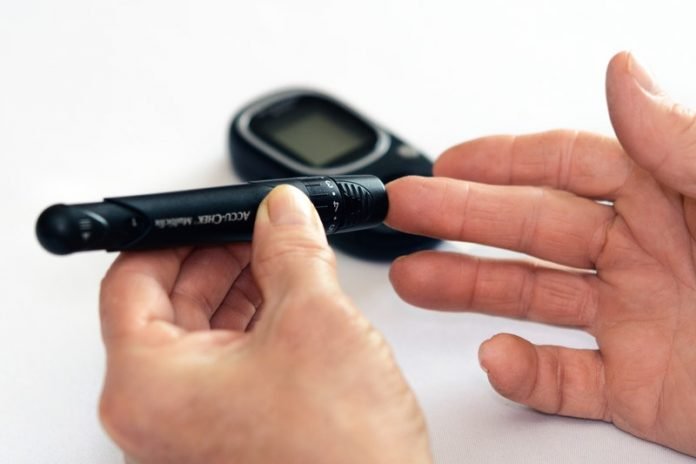
In a new study, researchers have developed a new calculator to help clinicians classify whether a patient has type 1 or type 2 diabetes.
This tool could ensure patients get the best treatment and reducing complications.
The research was conducted by a team from the University of Exeter, Oxford, and Dundee.
The calculator uses a model that takes into account available data about the patient, as well as blood test results.
It can be used to identify if a person is likely to have type 1 diabetes, to reduce misdiagnosis.
Former Prime Minister Theresa May was initially diagnosed with type 2 diabetes. Only when tablet treatment failed to work was she re-diagnosed with type 1.
It is often difficult for clinicians to diagnose which type of diabetes a patient has.
While blood tests such as antibodies against the cells that make insulin, or a person’s genetic risk of type 1 diabetes may help diagnosis, these tests do not give a diagnosis on their own and maybe interpreted very differently depending on whether or not a person has other features of type 1 diabetes.
The new calculator, currently available in beta format, combines available information from blood tests with a person’s age of diagnosis and BMI for a personalized medicine approach.
The study analyzed data on 1,352 participants with diabetes and tested the new calculator in a further 582 participants.
According to the team, the new calculator will build on the success of a similar calculator previously developed at Exeter, to help clinicians determine whether a patient has the diabetes subtype MODY, caused by a single gene.
The online calculator has been used by more than 100,000 people, with more than 9,000 people downloading the calculator phone app Diabetes Diagnostics, which will be updated to include the new calculator.
Almost half of all referrals sent to the UK diagnostic laboratory for MODY now report using the calculator and those that report using the calculator have a higher detection rate compared with those that do not.
The team says the right diagnosis in diabetes is absolutely crucial to getting the best outcomes for patients, as treatment is very different in different types of diabetes.
However, in some people it can be very difficult to know what type of diabetes they have.
The new calculator can help clinicians by combining different features to give them the probability a person will have type 1 diabetes and assess whether additional tests are likely to be helpful.
The lead author of the study is Dr. Angus Jones, of the University of Exeter Medical School.
The study is published in the BMJ Open.
Copyright © 2019 Knowridge Science Report. All rights reserved.



